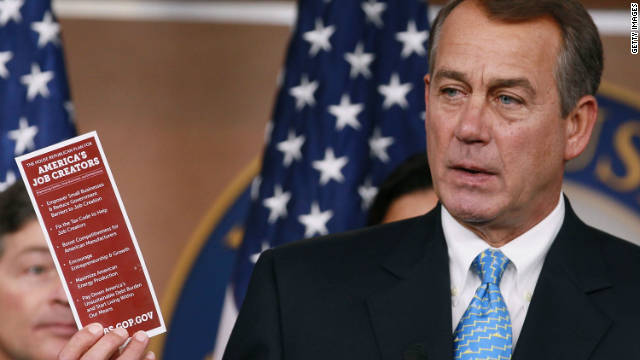Bill filed to prohibit congressional insider trading
Washington (CNN) -- Members of Congress and their staffs would be prohibited from using insider legislative information for investment purposes under legislation filed Tuesday in the wake of a CBS News "60 Minutes" report.
On Sunday, "60 Minutes" aired a report highlighting instances in which congressional officials reportedly bought stocks around the same time Congress was discussing legislation affecting those companies or industries.
The show looked at the investments of various lawmakers -- including House Minority Leader Nancy Pelosi, House Speaker John Boehner and Republican Rep. Spencer Bachus of Alabama.
Investopedia explains Insider Trading
Insider trading can be illegal or legal depending on when the insider makes the trade: it is illegal when the material information is still nonpublic--trading while having special knowledge is unfair to other investors who don't have access to such knowledge. Illegal insider trading therefore includes tipping others when you have any sort of nonpublic information. Directors are not the only ones who have the potential to be convicted of insider trading. People such as brokers and even family members can be guilty.
Insider trading is legal once the material information has been made public, at which time the insider has no direct advantage over other investors. The SEC, however, still requires all insiders to report all their transactions. So, as insiders have an insight into the workings of their company, it may be wise for an investor to look at these reports to see how insiders are legally trading theirstock.
Read more: http://www.investopedia.com/terms/i/insidertrading.asp#ixzz1dvDY0BZr
The bill filed Tuesday by Massachusetts Republican Sen. Scott Brown would make it illegal for elected congressional officials, their staffs and executive branch employees to use information about pending bills that's not available to the general public in making investment decisions. It would also forbid them from making such information public for personal gain.
Brown's bill, which he called the Stop Trading on Congressional Knowledge, or STOCK Act, would clarify insider trading regulations that do not clearly identify whether the use of inside government information constitutes insider trading.
"Members of Congress should live under the same laws as everyone else. If they trade on inside knowledge to line their own pockets, they should be punished," Brown said in a statement, without referencing any of the officials named in the report. "Serving the public is a privilege and honor, not an opportunity for personal gain."
On Sunday, Pelosi fired back at the report, dismissing claims that her 2008 purchase with her husband of 5,000 shares of the initial public offering of credit card company Visa conflicted with a piece of legislation -- opposed by credit-card companies -- that was making its way through the House.
Washington, DC – Today, U.S. Senator Scott Brown (R-MA) will introduce the Stop Trading on Congressional Knowledge (STOCK) Act of 2011, which would prohibit members or employees of Congress, as well as Executive Branch employees, from using nonpublic information obtained through their public service for the purposes of investing or otherwise making a personal financial gain. Senator Brown issued the following statement on the introduction of the STOCK Act:
“Members of Congress should live under the same laws as everyone else. If they trade on inside knowledge to line their own pockets, they should be punished. Serving the public is a privilege and an honor, not an opportunity for personal gain. I hope every Senator will join me in this effort to lend greater credibility to our work and restore trust in this institution. We serve the public, not our bank accounts, and no one should be allowed to enrich themselves based on inside government information that is not available to the general public.”






No comments:
Post a Comment